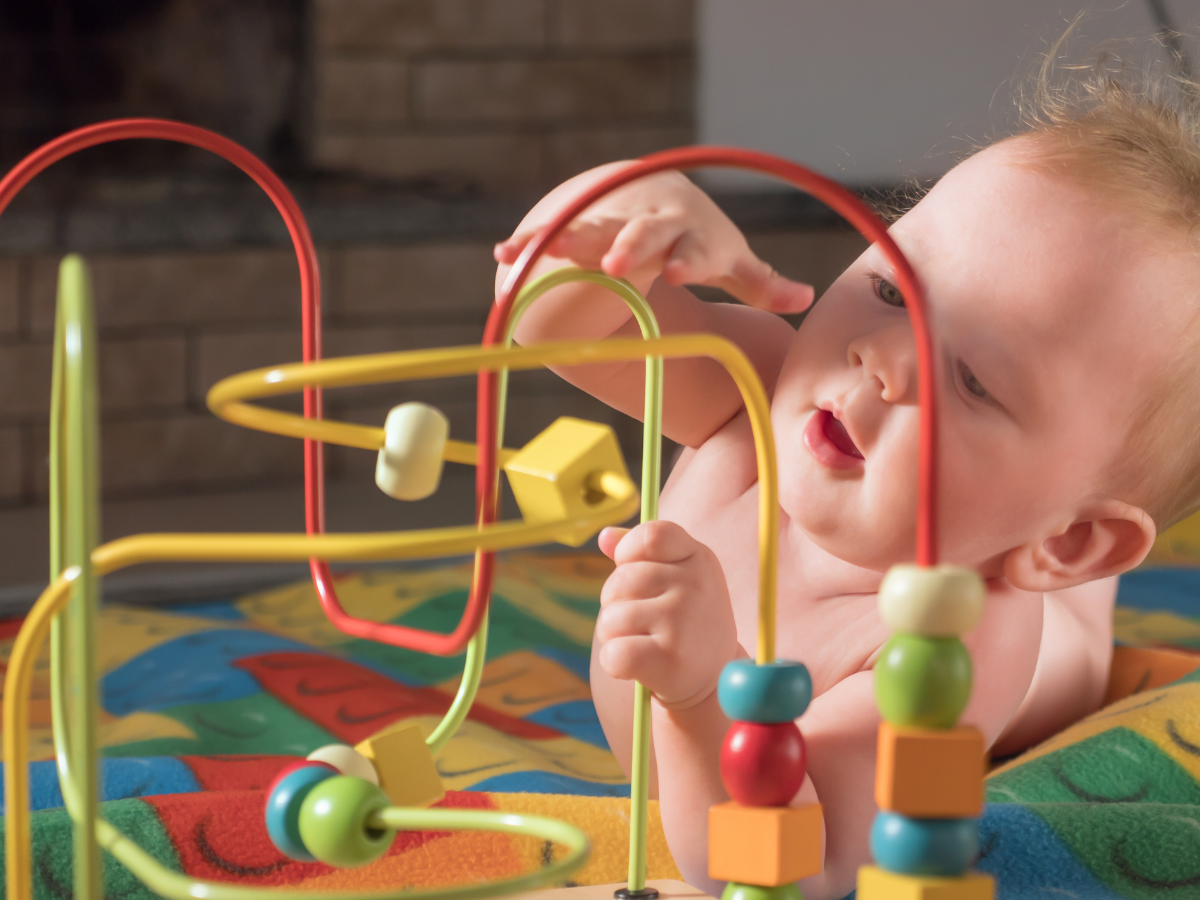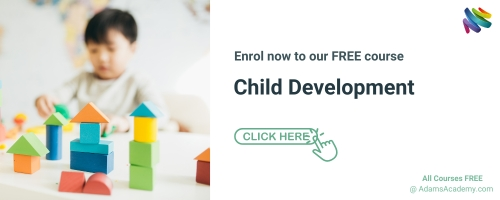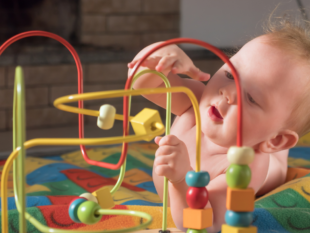
As a society, we prize the value of having children as assets. Taking care of children is an investment in their well-being that demands effort and financial resources, so buckle up and join me in exploring the beautiful territory of child development! Let’s delve into the intriguing voyage children take upon entering the world as we uncover its mysteries in this article.
Watching a child develop is an awe-inspiring whirlwind of achievements, from adorable first steps to astonishing cognitive growth. The fascinating journey of child development that sculpts both mind and body is what we will examine.
In this article, we will cover:
What is Child Development?
Stages of Child Development
Physical Development
Cognitive Development
Emotional Development
Social Development
Factors Influencing Child Development
Genetic Factors
Environmental Factors
Cultural Factors
Importance of Child Development
Physical Growth
Cognitive Abilities
Emotional Intelligence
Social Skills
Long-Term Benefits
Child Development Jobs
Child Psychologist
Paediatrician
Childcare Worker
Special Education Teacher
Conclusion
FAQs
What is Child Development?
The first stage of a child’s growth involves biological development, followed by psychological alterations, leading to social changes. The advancement of children from one developmental stage to another consists of physical transformation, cognitive and emotional improvement.
To be an effective educator or parent, it is crucial to understand how children develop. The following can be recognised and supported more effectively when using it:
Children’s needs
Promote their well-being
Facilitate their optimal growth and development in all areas of their lives
Basics of Child Development
Child development is an incredible journey filled with awe-inspiring changes and growth. It allows us to appreciate their remarkable journey, celebrates their growth and helps them reach their fullest potential in all aspects of their lives. Let’s dive into the basics of this fascinating process, covering the following:
Physical Development
Cognitive Development
Emotional Development
Social Development
Physical Development
Physical development is like watching a tiny seed blossom into a beautiful flower. As children grow, their bodies undergo remarkable changes. They gain height, put on weight, and their motor skills become refined.
Cognitive Development
Cognitive development is witnessing the unfolding of a little genius. As children explore their world, their minds absorb knowledge like sponges. They develop language skills, learn to solve problems and engage in imaginative play. Their memory, attention, and reasoning skills flourish.
Emotional Development
The experience of emotional development is like a rollercoaster with twists and turns. These lead to revelations about oneself, from being giddy over laughter to throwing temper tantrums – kids learn how to regulate their emotions over time. Understanding personal and external emotional states allows individuals to increase their self-awareness, and building emotional connections with caregivers equips them to manage their feelings. Building confidence and a positive sense of self are among their goals.
Social Development
Social development is like observing the birth of social butterflies. Children begin to interact with their peers and form friendships. They learn essential social skills, such as sharing, taking turns, and cooperating. Understanding social norms and roles, they start to carve out their own identity within the larger fabric of family, peers, and society.
Stages of Child Development
Child development unfolds in distinct stages, each with characteristics and milestones. Understanding these stages helps parents, educators, and caregivers provide appropriate support and nurture children’s growth. Let’s journey through
Infancy
Early Childhood
Middle Childhood
Adolescence
Infancy
Infancy is a time of wonder and dependency. From birth to around 2 years old, babies experience incredible growth and development. They learn to roll over, sit up, crawl, and eventually take their first wobbly steps.
Their communication skills blossom as they babble, coo, and eventually say their first words. Infants form deep attachments with their caregivers, developing a sense of trust and security.
Early Childhood
Early childhood is a whirlwind of discovery. They play pretend, ask endless questions, and soak knowledge like little sponges. Their language skills rapidly expand; they form sentences and express thoughts and feelings.
They develop fine motor skills, learning to draw, write, and dress. Independence and self-expression take centre stage as they navigate the world around them.
Middle Childhood
Middle childhood is a time of expanding horizons. Children age 6 to 12 enter a new cognitive, social, and physical development phase. Their thinking becomes more logical and abstract, allowing them to solve complex problems.
They develop a stronger sense of empathy and moral reasoning, forming deeper friendships and understanding the perspectives of others. Physically, they gain strength and coordination, engaging in sports, hobbies, and creative activities.
Adolescence
Adolescence is a cyclone of change and self-discovery. Teenagers ages 12 to 18 undergo significant physical, cognitive, and emotional transformations. Puberty brings about rapid physical growth and hormonal changes.
Teenagers grapple with their identities, forming their beliefs, values, and goals. They seek independence yet also yearn for acceptance and belonging. They engage in more complex thinking and decision-making, exploring their passions and preparing for adulthood.
Factors Influencing Child Development
The topic of child development is both compelling and multifaceted, as it accounts for numerous factors impacting the growth and potential of young individuals. Note that these elements are intertwined and cannot work alone. Their genetic predispositions uniquely shape the impact of environment and culture on children’s development, and exploring the key factors impacting children’s growth and development is vital to understand.
- Genetic factors
- Environmental factors
- Cultural factors
Genetic Factors
Genetic factors form the foundation of a child’s development. Each child inherits a unique set of genes from their parents, influencing their physical attributes, temperament, and potential health conditions. These genetic traits lay the groundwork for a child’s growth and provide a starting point for their developmental journey.
Environmental Factors
Environmental factors can significantly affect children’s growth and progress, including where they live and go to school, which can heavily impact their cognitive abilities and social behaviour.
Supportive environments promote children’s growth, whereas difficult circumstances may hamper their progress. Optimal development can be achieved by providing quality education, proper nutrition, and good healthcare facilities while ensuring a secure living ambience.
Cultural Factors
Cultural aspects have an essential role in shaping a child’s development, and a child’s cultural background affects how they view the world around them and interact with others. The cultural context that frames language acquisition influences social norms and behaviour patterns.
Cultural diversity allows children to learn about the world by expanding their perspectives with empathy and adaptability skills that are fundamental for their developmental growth.
Importance of Child Development
It’s crucial to prioritise child development. Because it affects the overall well-being of an individual and society. Exploring this matter more extensively:
- Physical Growth
- Cognitive Abilities
- Emotional Intelligence
- Social Skills
- Long-Term Benefits
Physical Growth
Child development promotes healthy physical growth and well-being through proper nutrition, healthcare, and a safe environment.
Cognitive Abilities
Early childhood is a critical period for cognitive development, where learning and acquiring new skills lay the foundation for academic success and future career prospects.
Emotional Intelligence
Child development fosters emotional intelligence, helping children identify and manage emotions, build resilience, and form healthy relationships, significantly impacting mental health and overall well-being.
Social Skills
Cooperation and empathy are essential for developing productive relationships in both personal and professional settings.
Long-Term Benefits
Investing in children’s growth has significant implications for the betterment of society over time, including increased social coherence leading to a minimised gap between rich and poor, paving the way towards an equitable future.
Child Development Jobs
The crucial role of child development cannot be overstated in its impact on shaping the future, and in our interconnected world today, various professionals use their knowledge and experience to help children grow and thrive. Let’s explore four critical careers in this field:
- Child Psychologist
- Paediatrician
- Childcare Worker
- Special Education Teacher
Child Psychologist
The task of understanding and addressing kids’ psychological well-being falls on the shoulders of child psychologists. Therapy is one way that children may get valuable insights about themselves through counselling sessions with trained professionals who specialise in understanding the behaviours of young people.
In addition to private practice, child psychologists can find employment opportunities at schools, hospitals, or different clinics. Typically, child psychologists make in the USA $94,683 annually based on experience and education.
Paediatrician
Paediatricians are experts in maintaining a child’s physical fitness by providing necessary medical treatment, vaccination & screening and ensuring adequate growth in children.
Paediatricians are instrumental in safeguarding children’s overall health by monitoring their developmental milestones and offering expert guidance to their parents. Additionally, paediatricians can practice in many places, including hospitals and clinics.
A paediatrician’s annual salary can differ based on specialisation and where they work worldwide. The approximate yearly salary can fall from about £40,257 To £77,274 annually in the UK.
Childcare Worker
Childcare workers are crucial to the success of early childhood education as they provide a strong foundation for children’s growth and a nurturing environment that fosters exploration and growth in children has been established. These dedicated caregivers help promote healthy social interaction and intellectual development through education and an emotionally supportive atmosphere.
In addition to daycares and preschools, you might find childcare professionals in community organisations. Depending on one’s experience level, qualifications, and location, a typical salary for childcare work in the USA ranges from around $30k-$40K annually.
Special Education Teacher
Special educators have an exclusive function as tailored strategies for teaching are at the heart of their close work with pupils experiencing disability or learning challenges, designing personalised education plans.
A supportive and inclusive classroom is essential for empowering children to reach their full potential, and those who teach special education may be found in schools or specialised centres.
On a global scale, special education teachers’ salary is often between 40 thousand dollars to 70 thousand dollars per year – it fluctuates according to the experience level and where they are based.
Conclusion
The significance of developing a child cannot be overstated. Prepare to be enlightened on the widespread advantages it brings. Acknowledge how it affects the body’s growth while revealing mind power that enhances cognitive abilities, and embark on a journey to explore the depths of emotional intelligence that nourish both your sense of self-awareness and your capacity for empathy. Behold the emergence of socially adept individuals capable of building long-lasting connections.
FAQs
- What are the critical stages of child development?
Childhood development usually follows certain stages, and some examples could be:
- Infancy and toddlerhood (birth to 2 years)
- Early childhood (2-6 years)
- Middle childhood (6-11 years)
- Adolescence (11-18 years)
- What are the primary areas of child development?
There are five primary areas of child development:
- Physical development, which includes growth and motor skills
- Cognitive development is related to mental processes such as learning new things or solving problems.
- Forming positive relationships and managing emotions is essential for social-emotional development.
- Developing one’s language and communication skills means acquiring the ability to comprehend messages conveyed using words together with non-verbal signs like physical gestures or facial expressions.
- Adaptive development is a term used to describe abilities essential for daily tasks such as eating and dressing.
- What are some signs of normal child development?
Children develop uniquely and progress at their rate. Despite this observation, most kids reach specific milestones within certain age ranges. By the first birthday of most children, they have reached important developmental milestones such as speaking a few simple words and sitting up independently while also enjoying playful interactions with others. At around five years old, it is typical for children to be able to hold conversations comfortably and control bodily functions and physical movements.
- How can parents support their child’s development?
Ensuring proper nutrition and getting enough sleep can be helpful ways for parents to lend support to their children’s growth. In addition, exploring the world around us and asking questions could spur curiosity. Monitoring a child’s growth regularly and seeking support promptly when there are concerns is essential for responsible parenting
- What is a developmental delay?
In cases where children don’t achieve the expected set of development goals on time, it can be referred to as a developmental delay. As children grow up, many changes commence within them. One may suffer from break-downs in their developmental processes for various reasons, such as lack of proper nutrition leading children to be unable to fully develop physically and cognitive delays, which usually lead kids to lag behind their peers mentally. An evaluation of developmental delays in children should be done as soon as possible to allow for effective early intervention.
- How are developmental delays diagnosed?
Parent interviews, direct observations, and standardised testing are commonly used together for diagnosing developmental delays, and this procedure typically includes the participation of healthcare professionals such as paediatricians and psychologists.
- What impact does the environment have on child development?
How a child develops depends mainly on their surroundings, and a wide range of factors, including language exposure, educational opportunities, and access to healthcare, can shape a child’s developmental trajectory. In general terms: promoting optimal development involves supporting a positive environment.
































































